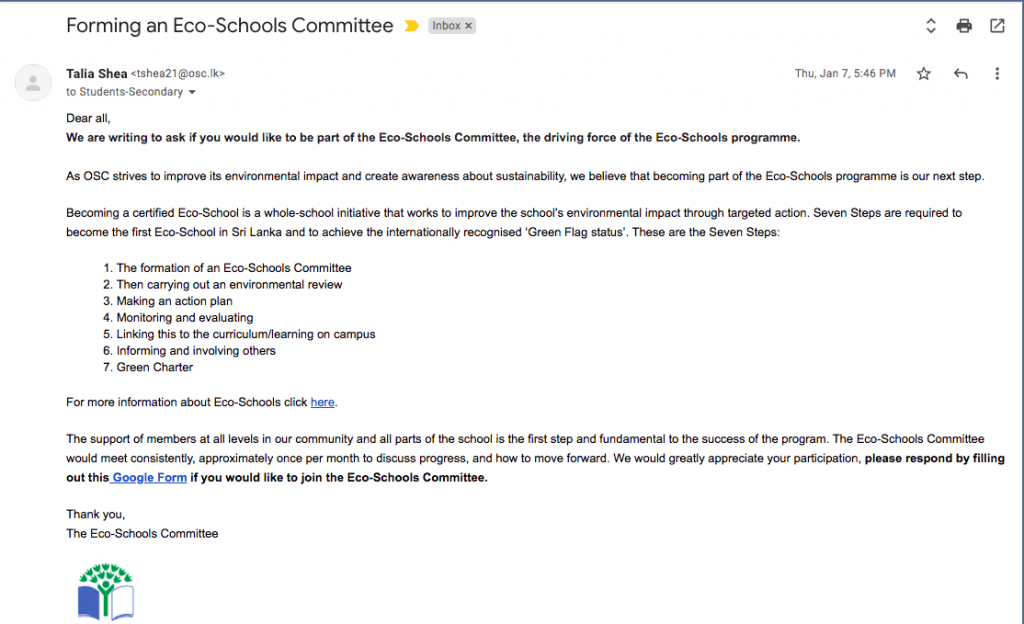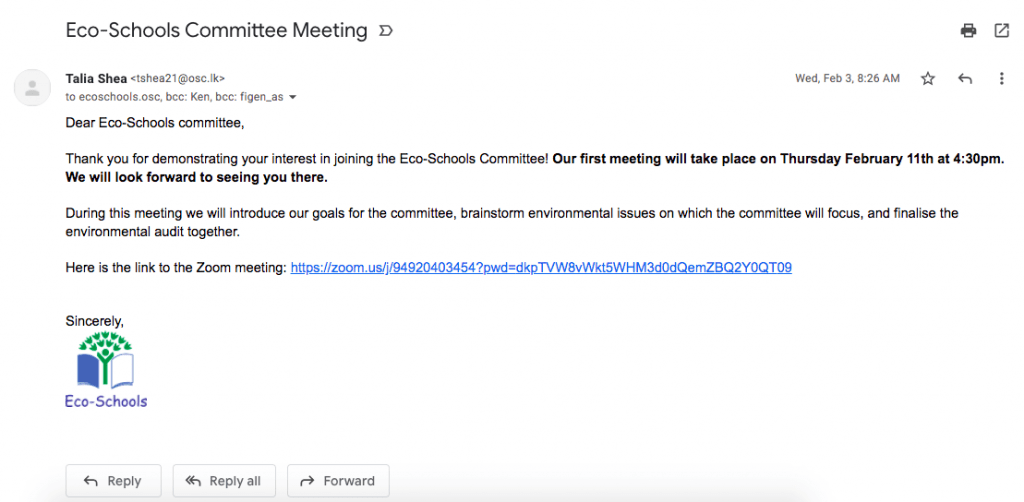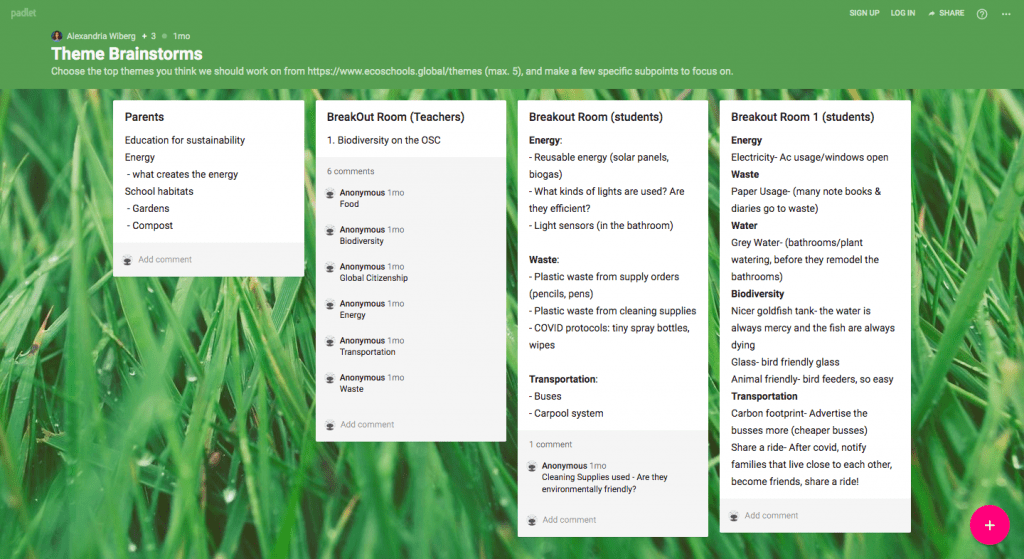
Eco-Schools is an international award programme that guides schools through a seven-step process that helps them address a variety of environmental issues. The seven steps are as follows:
- Forming an Eco-Schools Committee
- Carrying out an environmental review
- Making an action plan
- Monitoring and evaluating
- Linking this to the curriculum/learning on campus
- Informing and involving others
- Green Charter
Across 68 countries there are 59,000 certified Eco-Schools, and OSC plans to be the first Eco-School in Sri Lanka to achieve the globally recognised green flag status.
In order to execute the program, we needed a core group of students that would meet weekly basis to handle logistics such as organising meetings, sending out emails, etc. Thus, the ‘core’ Eco-Schools committee was formed based on students who had shown previous interest in environmental preservation (ie. members from the ReefKeepers service group, the Recycling and Sustainability service group and other volunteers). Within this smaller committee, Alex and I took on the role of communications.
The first step that we needed to achieve as per the seven-step program was to form an official community wide Eco-Schools committee consisting of students, teachers, parents and administration. As Alex and I were in charge of communications, we sent out a community-wide email explaining briefly what Eco-Schools was and how to sign up. Through this we were able to get 40 responses of people willing to be a part of our larger Eco-Schools committee that meets monthly. Now we are in the process of setting up our first meeting with the larger committee to discuss the next step of the program, the environmental review.

After we sent out the Eco-Schools sign-up email we were able to focus on setting up our first official committee meeting. For this meeting, we were focusing on the second step of the program of “carrying out an environmental review”. Thus, we needed to come up with a meeting agenda that would enable the committee to address the second step of the program. During the planning meetings we discussed how we would overcome the different challenges of having a meeting with over 40 people on zoom and how we would overcome it.
The finalised meeting agenda was:
- Introduction to the Eco-Schools program and the second step (presentation)
- Identification of 5 areas of improvement in environmental impact in the school/community according to the Eco-Schools themes (break out rooms separated as teachers/parents/students)
- Group discussion about the themes selected, top 5 consensus from each group for audit
- Creation of audit questions for each theme using padlet (randomised break out rooms each assigned one theme)
- Group summary of questions raised form each theme
The meeting was scheduled for February 11th and so I was responsible for sending out a ‘reminder’ email for the meeting with the date, time and zoom link.

The meeting ran successfully and we were able to identify the major areas of improvement and questions we can use to evaluate them.
